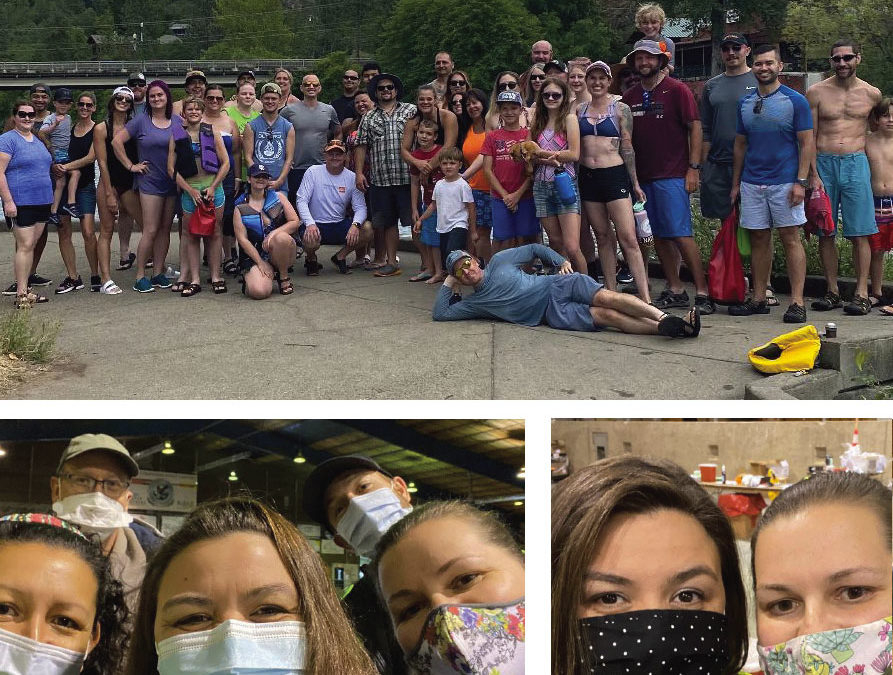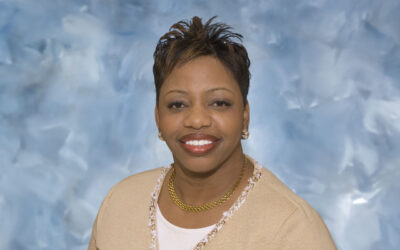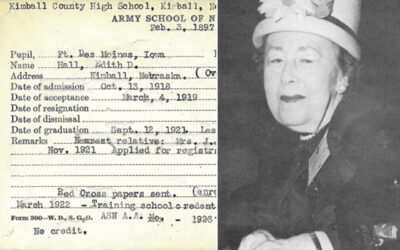
Twenty years ago, when she started out at Laramie County Community College in Cheyenne, Wyoming, as a young, single mom, Laura Nelson had planned on preparing for a career as an X-ray technician. But by the time she’d gotten to anatomy class, her instructor recognized that the certificate program wasn’t likely to hold her interest.
“He said to me and my friend, ‘I don’t think you guys are going to like what you’re doing; I think you want to go into nursing,’” Nelson recalled.
“You had to take the nursing entrance test (NET) to apply to the nursing school,” she said, “so we called the nursing school. They said, ‘It’s the last day to test, it’s a four-hour test, and we close in an hour.”
“My philosophy my entire life has been that your life is a result of the choices that you make,” she said. “I decided to take the next step, and the next step.”
Nelson aced the test and got into nursing school on her first try. But in her early clinical rotations, when she was assigned to a hospice rotation, Nelson began to think she’d made a serious error.
“I’m not the most huggy, soft person in the world, so when I went to hospice, I was crying every day,” she said. “It’s so sad. And my friend who was a surgical technician said, ‘You’ve just got to get to the OR. Go watch a case and see what this is like.”
Nelson won one of five slots in the perioperative 101 course, and from that point on, her path was much clearer. After graduating with an associate’s degree, she took a job at United Medical Center in Cheyenne. With her first vacation pay, she decided to take her kids to San Diego for a trip to Sea World. While she was there, reading a newspaper on the beach, Nelson spotted a job opening at the trauma team at the Navy Medical Center San Diego. She applied during her vacation, and got a job offer from the hospital upon returning home to Wyoming.
“I worked on the ortho trauma team there, and that was probably one of the most incredible experiences of my life,” Nelson said. “It was at the height of the Afghan War, so we would get all the West Coast Navy and Marines who were injured in Afghanistan.”
“Triple amputations, multiple reconstructive surgeries; these are young, young men,” she said. “That is a very humbling experience.”
In addition to circulating, Nelson also was tasked with teaching Navy corpsmen the skills of a surgical technician so they would be able to provide emergency aid in forward operating bases that didn’t always have a nurse. She quickly learned that she not only enjoyed teaching new OR staffers, but that she was good at it, too. Nelson began to consider Officer Candidate School (OCS), but knew she’d need a bachelor’s degree to get in.
So, with four small children at home and a husband who was deployed, Nelson enrolled in Chamberlain College of Nursing, and completed her degree online in about 13 months – with a perfect 4.0 GPA.
But she never made it to OCS: her husband was ordered to Guantanamo Bay, Cuba, and without any other family support in San Diego, Nelson and the children relocated to San Antonio, Texas. There she took a job on the surgical research team at Fort Sam Houston that was “totally different from anything I’d done before.”
“It was the first time I had to wear dress clothes and not scrub pajamas,” Nelson laughed. “It was interesting because we were learning cutting-edge techniques that could change the face of surgery, but then there’s also times when you do nothing because any patient outcomes have to be investigated. You could show up to work for weeks and not be able to work on your studies.”
After a year, the family regrouped. Nelson’s husband at the time was getting ready to complete his military service, and so they asked the children where they’d like to go next. After a vote, they returned to southern Oregon, and Nelson took a job at Asante Rogue Regional Medical Center, the hospital at which she was born. Within a year, she was promoted to charge nurse.
“When I got here, I learned how to scrub,” Nelson said. “It was very different for me; really fun. The pace is a little faster with no residents; the surgeons are incredibly skilled, and very fast.”
“I’m a very good puzzle person and people person,” she said. “Surgery scheduling is like Tetris: if you can get the right people in the right rooms at the right time, everything goes very smoothly. I really enjoyed matching up the right people with the right outcomes, and having fun. Everybody wants to participate, and everything gets done sooner.”
Today, Nelson has been at Asante for nine years; her children are now 22, 20, 14 and 13. After backing up different team leaders and charge nurses, she returned to regular bedside circulating for a time before taking on the role of manger of surgical services.
Amid a nationwide nursing shortage, the needs of her position have only gotten more demanding during the novel coronavirus (COVID-19) pandemic. In the summer of 2021, rural Jackson County, Oregon, where Asante is located, had the highest per-capita COVID-19 case rate in the nation.
“We were already short nurses across the nation, and now here comes the pandemic,” Nelson said. “We watched coworkers die, patients die; more sad things than you can imagine, and people are protesting outside because they don’t want their shot.”
“We don’t want to make national news for being unvaccinated and ignorant and letting our people die,” she said. “Because of all that hospital space needed for COVID patients, we shut down surgery because people hadn’t gotten their shots. That’s a really weird thing to understand.”
Nonetheless, Nelson works to make her hospital a comfortable place for herself and her coworkers. During the summer and winter months, she hosts annual parties for colleagues who are away from their families, and gets out her own wanderlust on vacations. The best advice she has for her fellow nurses is to remember that their jobs afford them opportunities unlike those in any other career.
“Treat every single person who goes on the table like someone you love the most,” Nelson said. “This is your mom. This is your daughter. This is your sister. We have the potential to change someone’s life – to hold their hand, take amazing care of them, and change their life.”
“That gives you a different kind of feeling,” she said. “It isn’t always a paycheck. It’s a purpose.”










